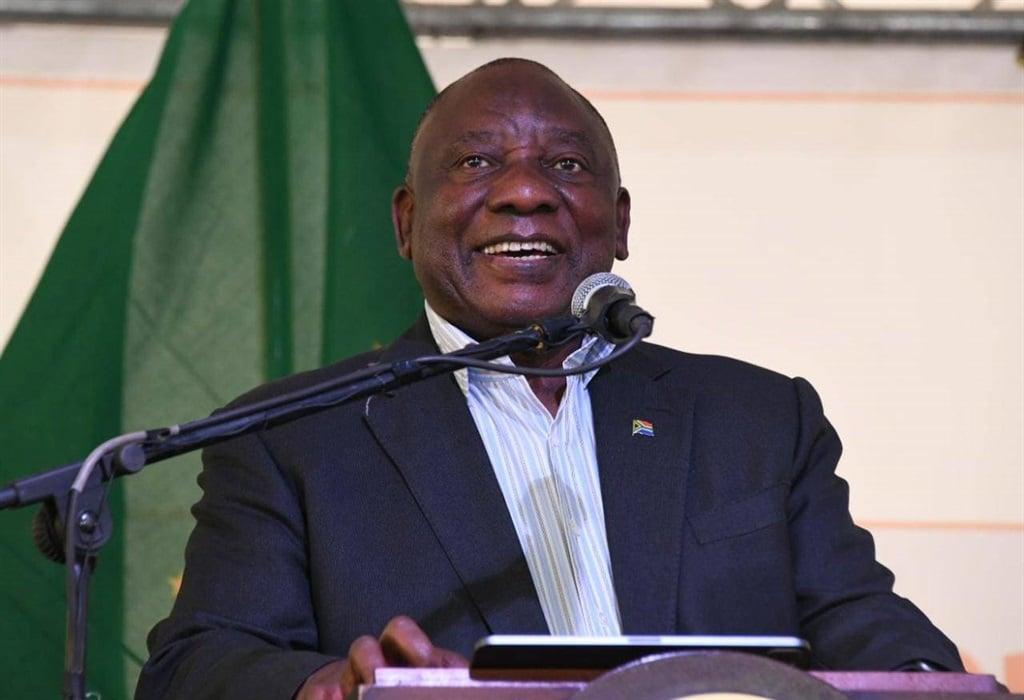Africa-Press – South-Africa. President Cyril Ramaphosa says the country needs to develop a law that bans unequal pay between men and women doing the same job, while also encouraging the public and private sectors to procure services from women-owned businesses.
He was delivering the keynote address at Women’s Day celebrations at the Union Buildings in Tshwane on Wednesday.
The event was attended by thousands of women from across Gauteng, including Sophie Williams de Bruyn who was one of the youngest protesters during the 1956 Women’s March in which more than 20 000 women staged a protest against pass laws.
The president said: “Our laws and policies must have a bias towards improving the lives of women.”
He placed an emphasis on payment grievances raised by Banyanya Banyana.
There has been much criticism that the national women’s soccer team receives less pay than its counterparts, Bafana Bafana, despite better performances on the pitch.
The team also recently petitioned SAFA for FIFA-guaranteed bonuses before participating in the recently concluded Women’s World Cup in New Zealand.
Banyana Banyana became the first African team to make it to the knockout stages of the global competition..
“We need to pay them well and their pay must be equal to that of men and even exceed what we pay men,” Ramaphosa said.
The president also commended the Proteas netball team for its performance at the Netball World Cup held in Cape Town.
“Our Netball team played very well and are now ranked 6th in the world,” he said.
Progress on Women Empowerment so far
Ramaphosa started his wide-ranging address by highlighting some of the progress the country has made in empowering women.
“The representation of women in decision-making structures continues to improve,” he said.
“In Parliament, in the judiciary, in the public service, in the armed forces, in the police and in many local councils, we are getting closer to gender parity.”
Women had also fared well on the education front, he said.
Ramaphosa added:
But the president admitted that, despite some progress, the country still had a long way to go to improve the conditions of women.
He said more than 12 000 police officers had received training in handling gender-based violence cases.
“More than one million DNA collection kits have been delivered to police stations around the country since 2019 and there are now just over 1 000 victim-friendly rooms at police stations countrywide.”
Ramaphosa said that, nearly three decades after the dawn of democracy, the face of poverty was a black woman.
“Women still carry the largest share of the burden of HIV and are more vulnerable to sexually transmitted diseases.
“Our economy remains dominated by men. More women are unemployed than men.”
Ramaphosa said the government had attempted to improve the plight of women through economic participation and legislation.
He added less than a third of women-owned business formed part of government’s supplier database and that work was being done to improve this.
Ramaphosa said:
He also encouraged the private sector to allocate at least 40% of its procurement budget to women-owned enterprises.
On the legal front, he said that he had signed into law the Criminal Law Amendment Act, the Criminal and Related Matters Amendment Act, and the Domestic Violence Amendment Act.
These were aimed to provide greater protection to survivors of gender-based violence, ensure that perpetrators were no longer able to evade prosecution, and to strengthen measures to prevent gender-based violence.
Ramaphosa added that his administration wanted to see bail denied to those charged in gender-based violence related cases.
Sisisi Tolashe, programme director of the event, said they took the president’s remarks seriously and would move to ensure that the calls he made were realised.
“We want to see SAFA ensure equal pay between men and women. We want to see the private sector buy more from women-led businesses,” said Tolashe, who is also the newly-elected ANC Women’s League president.
“We are going to demand programmes and time-frames on legislation changes and programmes of women economic empowerment.”
For More News And Analysis About South-Africa Follow Africa-Press






